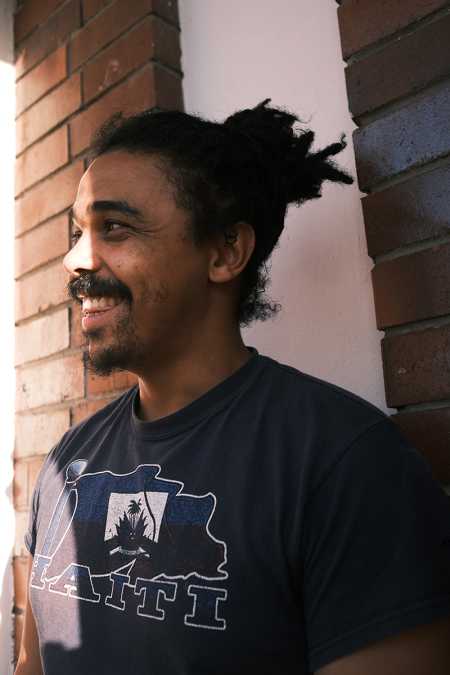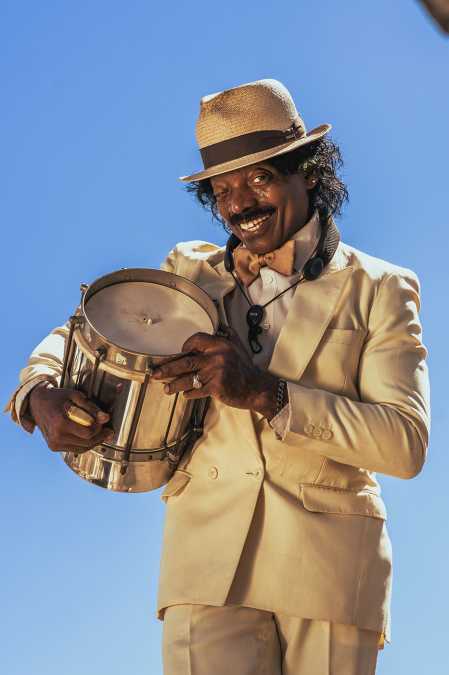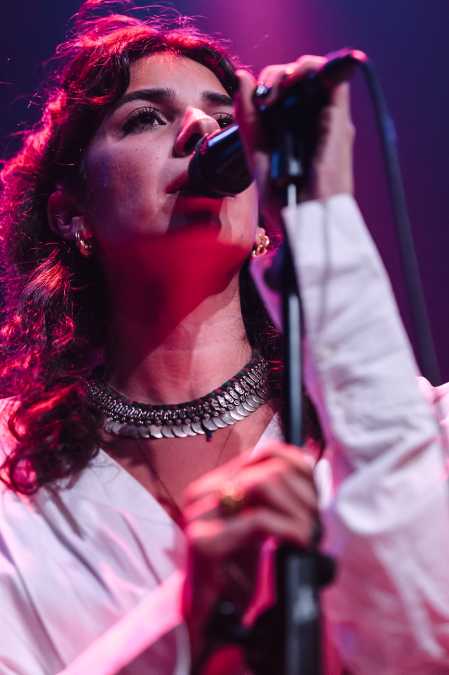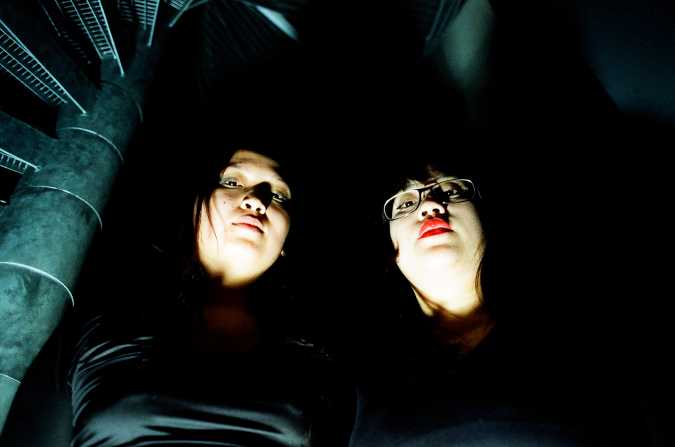COSMOS: Behind the Scenes with POP Montréal
In 'Behind the Scenes', COSMOS dives into local stories from across the world together with our global partners.
Ever since Le Guess Who?'s very first edition, there's been a strong bond with POP Montréal’s 20+ year long history of platforming cutting-edge music. Following our COSMOS Embassy at the storied Quebecoise festival in 2023, we asked Montréal-based blogger, musician, and nightlife expert Sach "Son Raw" Orenstein to sit down with POP Montréal co-founder Daniel Seligman to discuss the past, present, and future of the city’s free-spirited culture scene.
Words by Son Raw
Photography by Allison Russel & Melanie Marsman
When POP Montréal launched in 2002, its home province of Quebec was coming off a divisive, near-miss separatist referendum and globalization-induced recession. Despite these headwinds, however, Montréal’s unpretentious charm, cheap rents, and multi-lingual and cultural mix still attracted students and musicians in droves. Young artists from Toronto to Paris and beyond made it their home alongside a generation of ambitious locals.
As festival co-founder and creative director Daniel Seligman, a member of that cohort, puts it: “I was quite young and had just graduated. My brother is in the pop band Stars and they were releasing their first album in 2001. I had a part time job and was looking for reasons to stay around Montréal, so I volunteered to help out: going on the road, tour managing, booking shows, setting up interviews. That’s how I learned about the music business. I also loved throwing loft parties and was an avid vinyl collector. You could find incredible deals on really cool vinyl for 3-4$.”
This mix of cheap rent and ambitious young creatives seeking to make an impact was the perfect storm for the early aughts zeitgeist. Indie rock was an ascendant critical darling, and electronic music in North America still the countercultural domain of warehouse raves and sketchy after-hours venues. While Montréal’s musical infrastructure didn’t quite know what to do with hip-hop, it was rapidly learning. The music press was booming as well, with Seligman highlighting the abundance of opportunities for music promotion, both on- and offline: “This was the beginning of online music.” Pitchfork was a thing but fairly nascent, college radio and weekly local papers had more of an impact. Montréal’s high quality of life earned the city a reputation as a bohemian stronghold in a sea of Anglo-American conformity, and new ideas, such as POP Montréal’s festival-as-event-series, just needed the right catalyst: “Coincidentally, I was on a train coming back from Toronto with a bag of records on me and this guy sat down beside me. He was one of the founders of the Halifax Pop Explosion festival. We chatted, kept in touch and a few months later, he said “why don’t we start a music festival in Montréal? It was the right place, right time. Obviously, POP Montréal’ has since become more established, but the roots of the festival are DIY.”

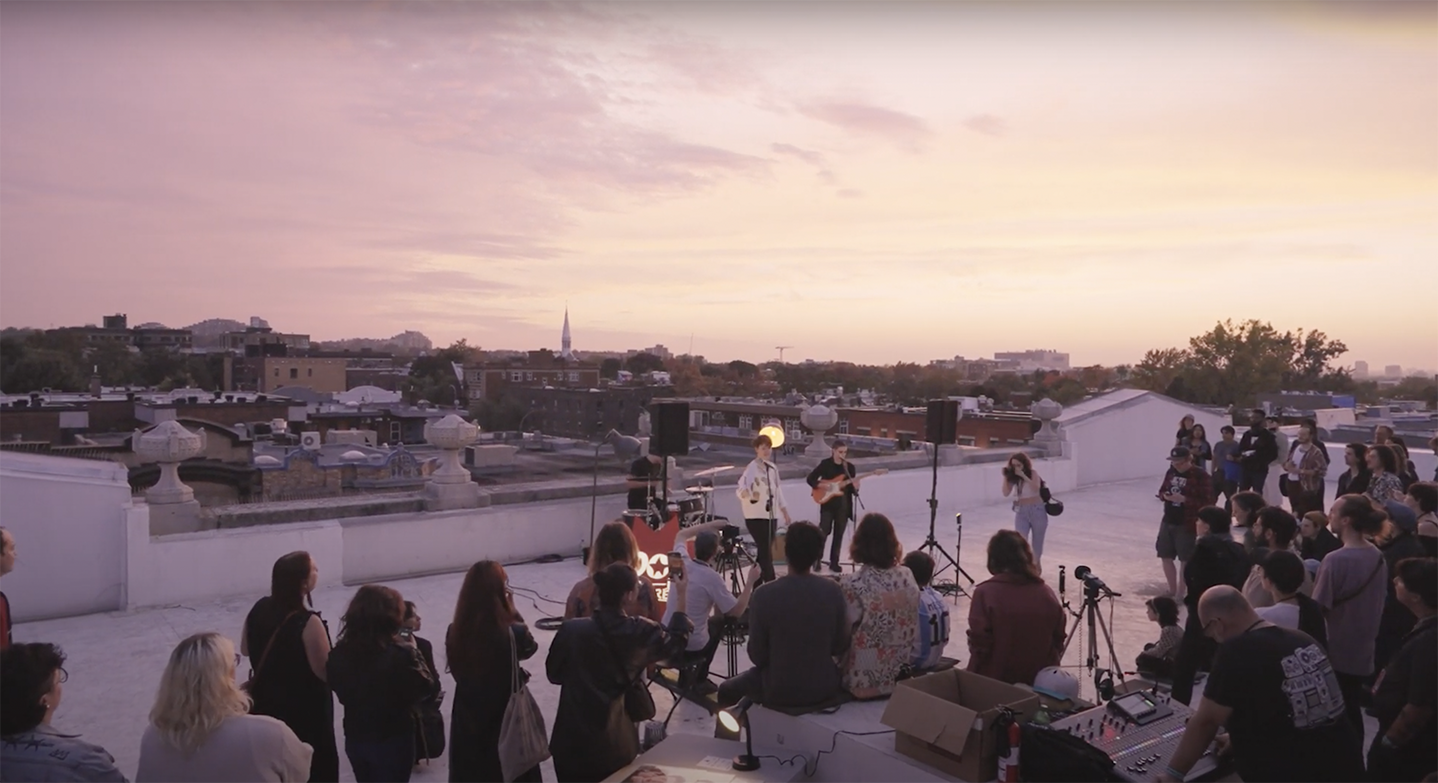
Though still proudly anti-conformist, Montréal has evolved with the times, tapping into the global music scene’s networks and talent – despite economic and political pressures threatening the easy-going lifestyle that made it such an attractive place for artists in the first place. Notably, its once bountiful cheap apartments are now an endangered species, victims of gentrification and a subsequent real estate boom. At the same time, the current nationalist government seems most concerned with raising tuition at the city’s English language universities, actively discouraging the Anglo-Franco mix that has defined the city’s character. Creatively however, the Montréal of today is at its most open minded: the primacy of alabaster indie has long been toppled in favor of a more diverse musical mix. A new influx of immigrants has left a strong creative imprint on the city’s rap and dance music scenes, and, as Seligman notes, festivals like POP Montréal continue to thrive by keeping the focus on quality over growth. “I think partially, POP Montréal hit a peak at the 10 year mark with a big free Arcade Fire show. It was the height of the indie scene in Montreal and people were asking: what are you going to do next? That’s when we made a conscious decision: we realized it’s not about becoming bigger and more popular, it’s about creating a really cool experience.”
This desire to focus on the cool and underheard isn’t limited to a single festival and it pairs well with Montréal’s reputation for celebration. After all, the city is hailed as the party capital of North America for its 18+ drinking age – low by North American standards – and Gallic bonhomie. This love of the high life is most evident in an overstuffed festival calendar covering everything from jazz and pop (Festival International de Jazz de Montréal), to Asian and horror cinema (Fantasia) to African and Afro-Caribbean music (Festival Nuits d'Afrique). Dance music fans are particularly spoiled for choice. Want futurism and leftfield sounds? MUTEK provides a week of experimental performances and avant-garde techno each August, alongside talks, workshops and a gear expo. Looking for something a bit more down to Earth? Piknkic Electronik’s outdoor Sunday weekly in scenic Parc Jean-Drapeau, a quick Metro ride from the city center, balances classic house and techno for a boisterous crowd that’s all smiles. And if you’re looking for something a bit harder, or just want to get plastered with college kids, ÎleSoniq’s EDM heavy weekend harkens back to the city’s Disco 70s and After hours 90s, but with a modern twist: hardcore dance music to soundtrack bad behavior (within reason). Speaking to this abundance of festivals, it’s worth noting their diverging objectives, with some showcasing the biggest and brightest stars with a for-profit motive, while others, as Seligman is keen to point out, benefit from Canada’s robust system of artistic grants.

While the city’s festivals are perfect for those seeking a quick Montréal getaway, locals know they’re just part of a robust nightlife scene per se. However, as gentrification has slowly led to the closure of beloved club and bar spaces, promoters have had to get creative. Old standbys like legal after-hours institution Stereo and hip midsized club Newspeak continue to attract clubbers downtown, while commercial strips like Crescent, St-Laurent and St-Denis draw in the student crowd. But it’s Chinatown that has emerged as the city’s newest hot spot. Here, beautifully decorated vinyl bar Sans Soleil – the perfect spot to enjoy the soulful side of house and jazz – comingles with one-off parties in hollowed out garment shops. For those who’d prefer to listen from the comfort of a bar stool, cocktail bar Le Mal Necessaire proves that punters need not choose between great drinks and great music, thanks to a standout roster of rare groove DJs, and mixologists happy to serve you a drink with Drake’s face drawn in foam. Unfortunately, Chinatown’s revival isn’t without controversy, as long-time residents worry about their rents being the latest victims of a suddenly hip neighborhood, while the area’s homeless population has occasionally clashed with more privileged clubbers in the early morning hours. While there are no easy and ethical answers to these dilemmas, Chinatown remains Montreal’s best hidden gem – for now.
Not only have the ad-hoc venues been replaced by luxury condos, their well-heeled residents are quick to call in noise complaints to police eager to shut down anything above a whisper. But while you’re unlikely to stumble upon the kind of massive rave that helped elevate Montréal veterans like Tiga or Mistress Barbara, you’ll still find smaller events catering to die-hard fans of various micro-scenes. Take for instance Musik Me Luv: founded over a decade ago by a group of locals inspired by London’s dubstep scene, their party series, held everywhere from restaurants to private spaces, has carried the torch for hardcore-continuum-inspired bass music, inviting international headliners for heads-centric sessions. Casting a wider net, Homegrown Harvest combines the headier side of bass to contemporary house and techno, creating welcome connections between the city’s emerging DJs and the newest sounds of the European club circuit. And while four-on-the-floor grooves remain the city’s bread and butter, brave promoters endeavour to provide alternatives for the city’s rapidly growing and diversifying population. Most notably, the long running Moonshine series [also a program partner of LGW22] of events promises nights dedicated to amapiano, afrobeats, gqom, kwaito, dancehall, and dozens more Afro and Afro-Latin styles, with most taking place in one off locations. It’s this fusion of new sounds and classic (if smaller) rave-style venues that offer the most uncut version of what Montréal’s music scene has to offer, brilliantly merging the city’s champagne-soaked past to its dynamic future.
With all of this partying, it’s a wonder that Montréalers even have time to actually record music in the first place, but the city’s output is more generous than ever, thanks to a few crucial institutions. While Montréalers of a certain age still mourn long-departed dance vinyl outlet In Beat Records, shops like the carefully curated La Rama Records do steady business in up to the minute wax. Catch-all stores like Aux 33 Tours and used wax emporium Death Of Vinyl move a wide variety of records to cratediggers and nostalgists alike. Gear wise, St-Laurent mainstay Moog Audio may have reduced their showroom space, but what the store now lacks in hands-on demo models, it more than makes up in variety, moving everything from specialist Eurorack modules to basic midi controllers. Finally, for producers and musicians seeking community and an opportunity to show off their skills, events like Loop Sessions and Brain Freeze host sample flip challenges and live electronic showcases respectively, drawing in a friendly crowd of local creators on a regular basis. Loop Sessions in particular has been a smashing success, expanding with sister events across the Americas, Europe and even Namibia, in Africa. Emerging from the same creative team behind the 2010s Art Beat series of events that helped position names like Kaytranada and Lunice for success, Loop Sessions is simultaneously Montréal’s best kept secret and freshest musical export: a low-key event series dedicated to new sounds without any of the ego tripping that can sometimes mar competitive beat battles.
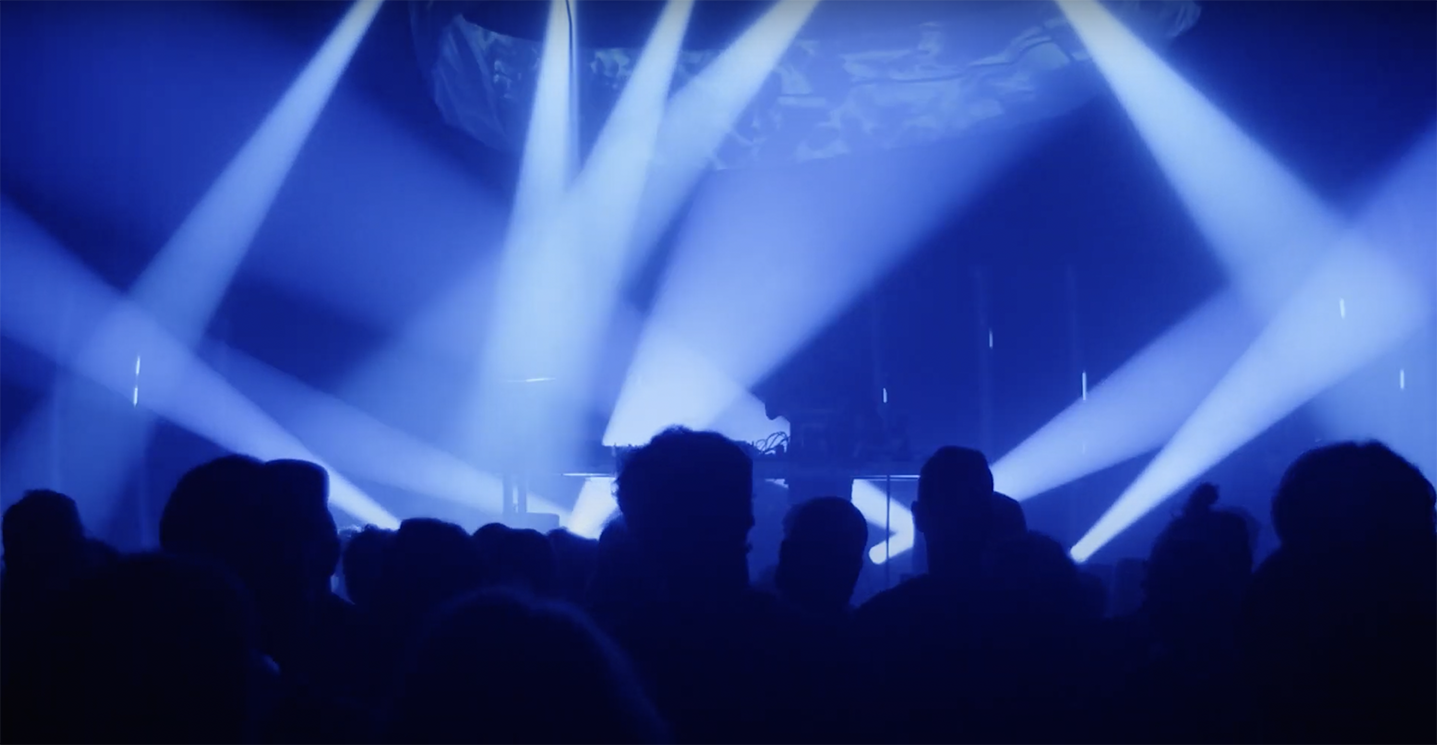
Montreal’s future is undoubtedly in flux. Squeezed on one side by property developers displacing long-time residents, and on the other by a provincial government openly hostile towards multiculturalism, artists and musicians face tougher conditions than ever. Additionally, Seligman bemoans macro-changes in music distribution and coverage threaten to further shift the balance of power towards major label superstars and tech company dominions:
Nevertheless, it’s not all bad news, and changing conditions can often spark new growth. While university administrators fret over a potentially declining Anglo-Canadian student body, any decrease in the Torontonians that once fueled the city’s indie scene is balanced out by a rapidly growing number of French-expats whose own tastes are now impacting the city’s nightlife, particularly through a growing number of hard techno events. Likewise, immigration from Franco-Africa, the Caribbean, Latin America and The Middle East are introducing new sounds and flavors to the city, and kids today are just as likely to be speaking a hybrid mix of French, English AND their mother tongues, to the consternation of older conservatives. As we wrap up, I ask Daniel what the future holds, in terms of Montréal generating world class artists: “It’s hard to say. Often you need one big artist to get the recognition and it shines attention on the wider scene. There are satellite worlds around certain artists. A recent example is an act like Kaytranada. I think scenes really develop organically, maybe it’s harder now, post-Covid because there may be fewer of those cool loft parties. But someone like [breakout queer rapper] Backxwash – nobody could have predicted her, and there’s a scene around her. Montréal’s still producing incredible talent.”
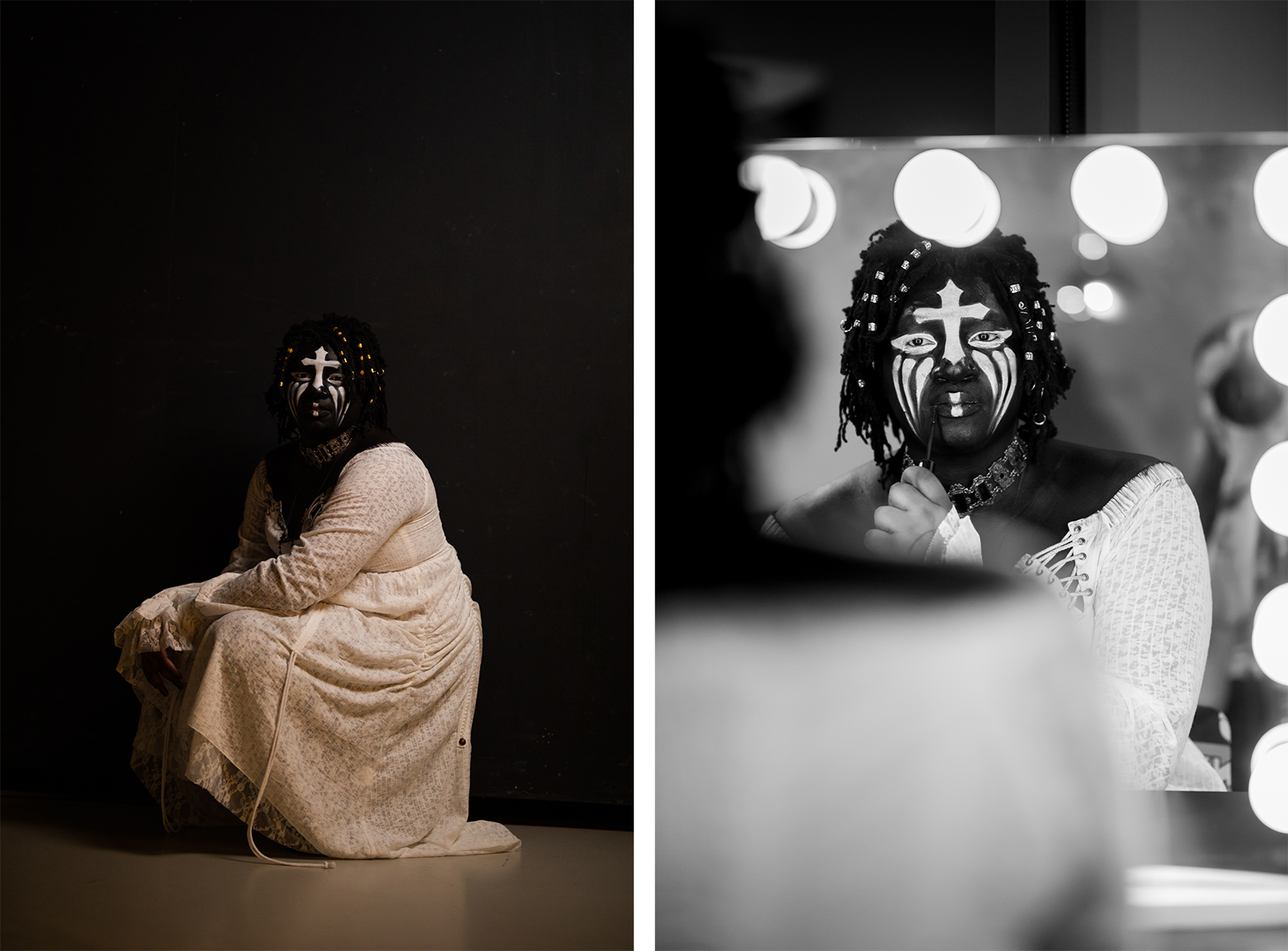
This article is part of the COSMOS series ‘Behind the Scenes’, in which people from across the world discuss their local cultural scenes and their creative processes.
Are you interested in collaborating with COSMOS to share your local cultural scene? Please let us know via cosmos@leguesswho.com.
